Come Monday, say 'bye' to free plastic bags
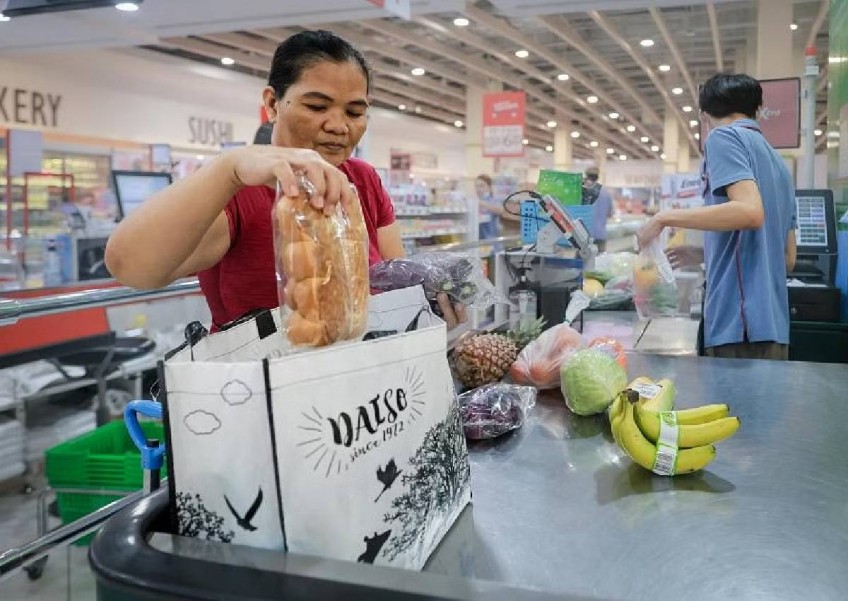

SINGAPORE - From Monday (July 3), shoppers must pay five cents for every plastic bag they take at major supermarket chains when a mandatory charge takes effect.
About 400 outlets, including those operated by FairPrice, Cold Storage, Giant, Sheng Siong and Prime, will be participating in this move. The tally amounts to about two-thirds of all outlets in Singapore. Larger supermarket operators with an annual turnover of more than $100 million fall under the mandate.
In the run-up to the mandatory charge, a Reddit user on June 27 noticed that a FairPrice branch was selling plastic bags in bulk near cashier counters. The user said each cost four cents.
Some netizens reacted, asking if this contradicts the go-green message, but a FairPrice Group spokesman said single-use plastic bags or food-safe bags have been available for purchase for years.
The spokesman added that FairPrice has been encouraging the non-use of plastic bags, with its FairPrice Green Rewards Scheme, which started in 2007 and ran until 2018, offering a 10-cent rebate to customers who spent a minimum of $10 and used their own bags.
The initiative was replaced with a plastic bag management programme.
Since 2019, some FairPrice and Cheers outlets began charging for plastic bags. By 2022, all 178 Cheers and FairPrice Xpress convenience stores, and 11 FairPrice supermarkets, billed for the bags.
The spokesman said this saved 57 million plastic bags in 2022.
FairPrice has also set up Bring Your Own Bag racks in seven outlets to encourage people to donate excess reusable bags for others to use.
The spokesmen for supermarkets including FairPrice, Cold Storage, Sheng Siong and Hao Mart said they have trained staff to educate customers on the charge implementation from Monday.
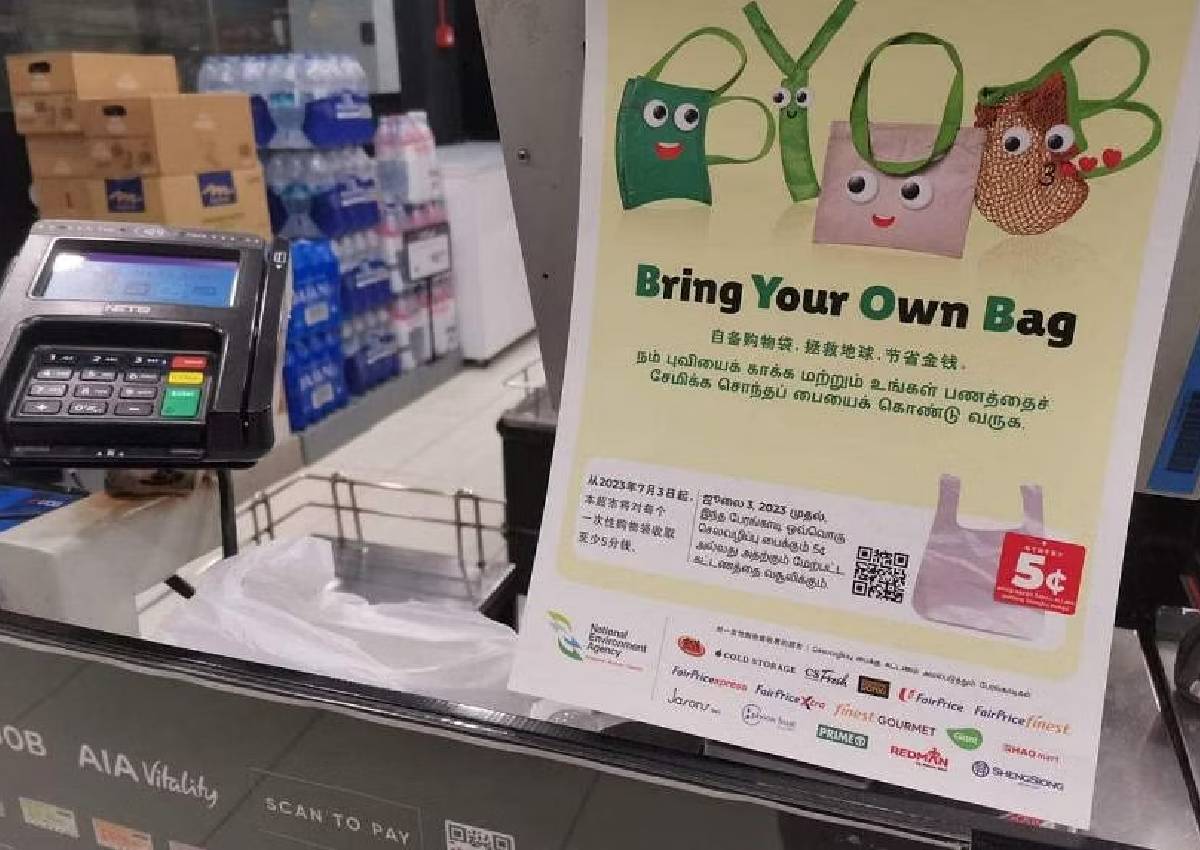
They have put up posters and launched social media campaigns to urge customers to bring their own reusable bags.
Sheng Siong has plastic bag holders at self-checkout counters that dispense a bag each time a customer adds one to his bill.
FairPrice will be relying on an honour system, trusting that shoppers will pay for every bag they are taking.
Oliver Yuen, senior economist and director (finance) of Research For Impact, a Singapore-based think-tank, said: "There will inevitably be instances of non-compliance in any honour system, especially in the early stage, when people are not accustomed to the... charge and are unfamiliar with the new checkout system.
"Over time, people will gradually adapt to the norm of bringing their own reusable bags or paying for single-use bags."
The Straits Times saw oxo-biodegradable plastic bags, a type of plastic bag marketed as biodegradable, sold in bulk at FairPrice and Cold Storage branches.
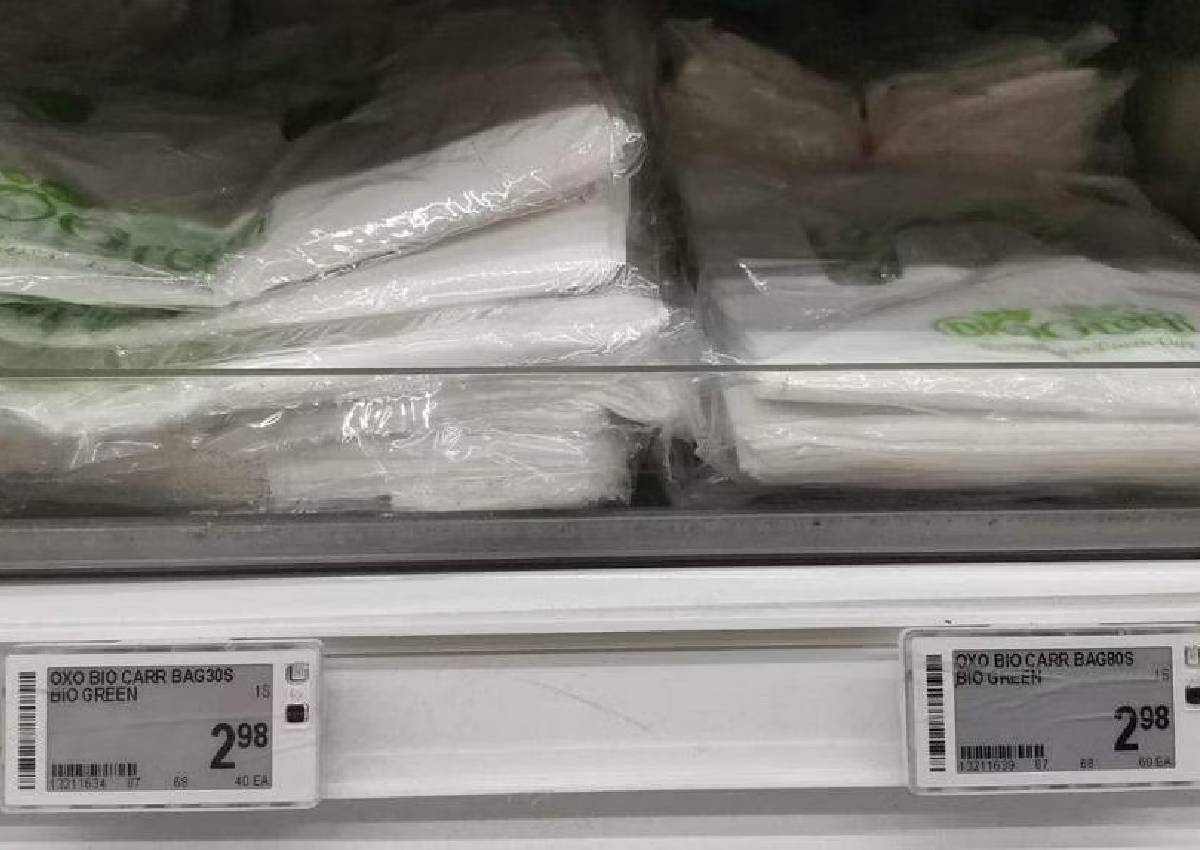
Germaine Tan, chief marketing officer of Hao Mart, which operates 31 stores, said it switched to such bags in 2021, and started charging five cents for each from May 15.
She added that the supermarket noticed customers being more mindful of their usage, and more are bringing their own bags.
Isabella Huang-Loh, chairman of the Singapore Environment Council (SEC), said oxo-biodegradable plastic bags do not fully biodegrade, but fragment into smaller pieces, or microplastics.
These can stay in the environment for a long time and potentially harm ecosystems and wildlife. The additives used in the bags can also remain in the environment.
Huang-Loh added: "As all incinerable waste in Singapore is either recycled or properly disposed of at waste-to-energy plants, biodegradable packaging is less beneficial and can even hinder the recycling process when mixed with conventional plastics.
"Instead, the priority should be for Singapore to reduce the amount of plastic waste through the promotion of reusable bags, recycling and transition to biodegradable or compostable alternatives that are certified to meet recognised standards."
In 2022, National Geographic reported that the oceans held more than five trillion pieces of plastic debris. It added: "Microplastics have been found in more than 100 aquatic species, including fish, shrimp and mussels destined for our dinner plates."
Retiree Tony Lim, 70, plans to reduce his plastic usage from Monday by carrying items he buys in his backpack or recyclable bags.
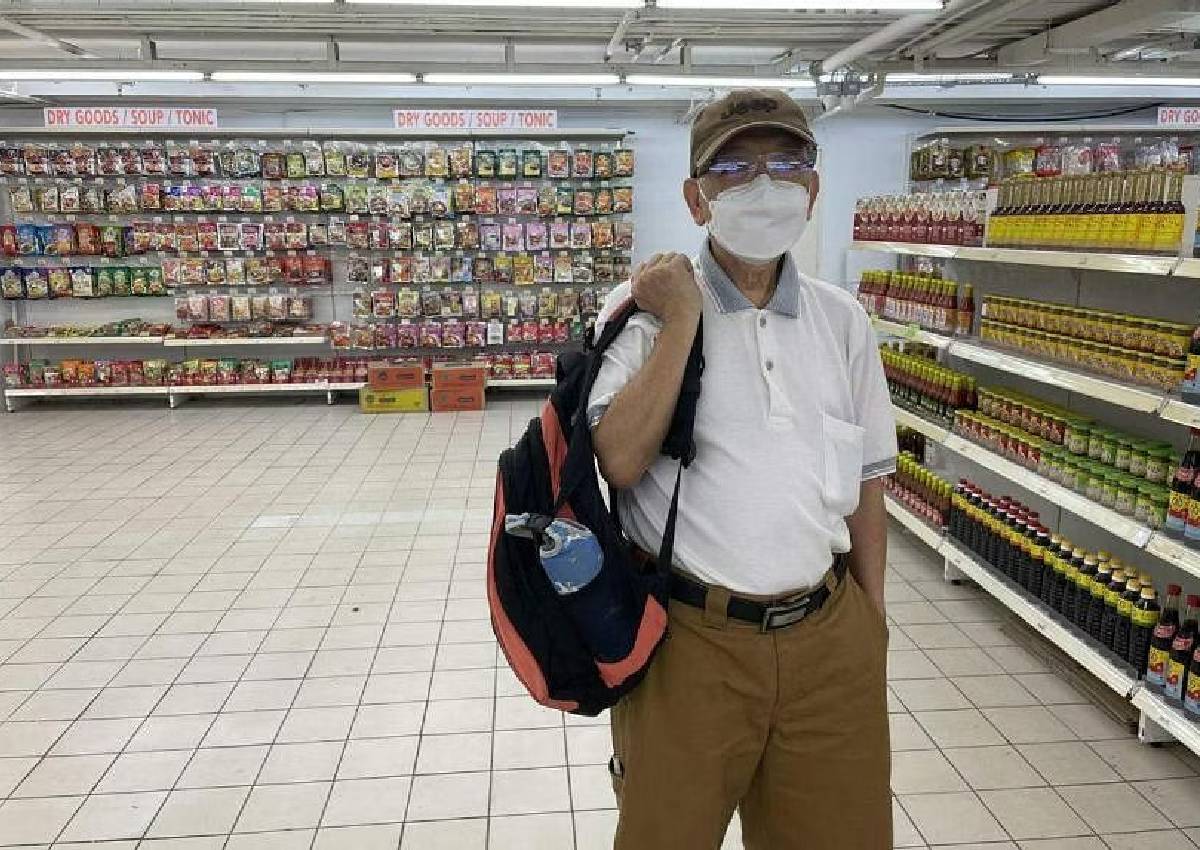
Dorin Liew, 57, a part-time music teacher, said she has used reusable bags for over five years, a habit she picked up when travelling to countries that already charge for plastic bags.
But she has not completely shied away from using plastic bags, which she reuses at home to line her trash bins.
With the upcoming five-cent charge, she has started seeking alternatives for disposing trash to ensure her stock of plastic bags at home does not run out.
She said: "I will start separating wet and dry waste, and use empty bread bags to throw away the wet waste. I would probably still use normal plastic bags for dry waste, though."
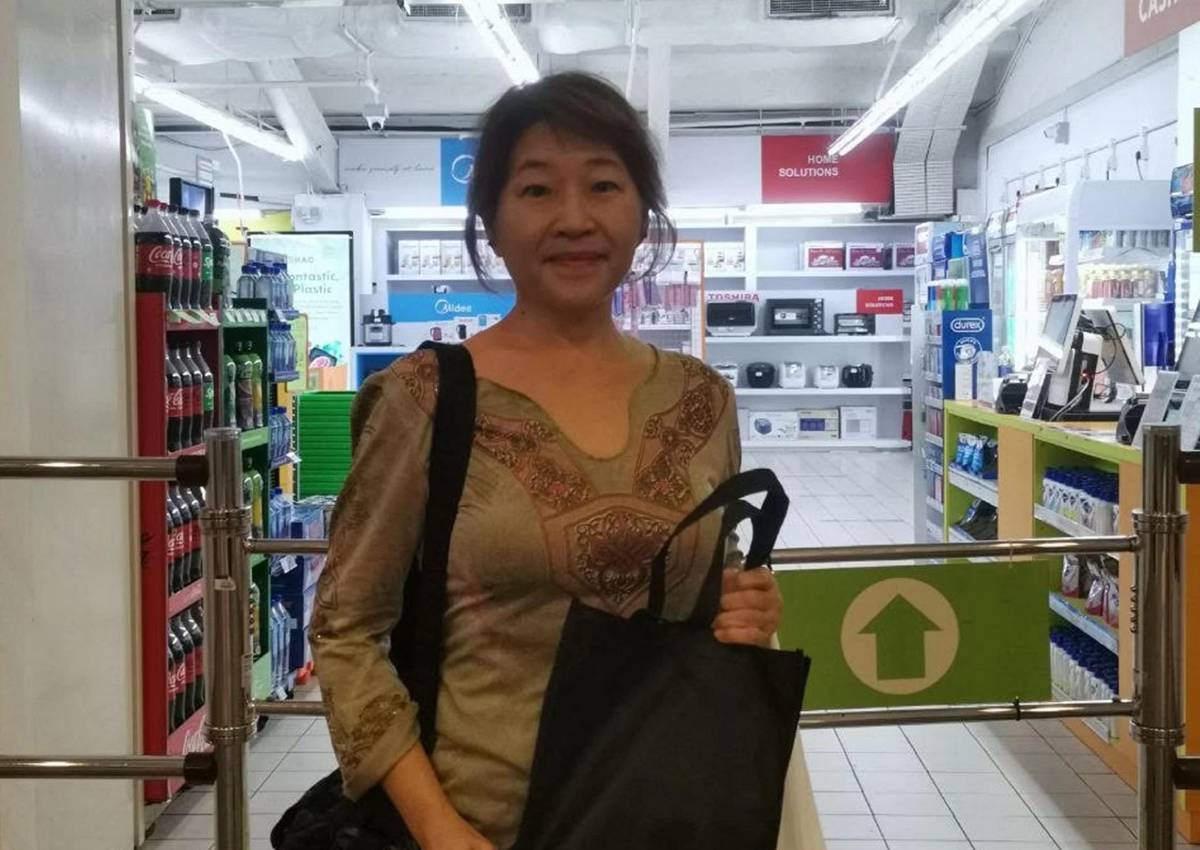
But not everyone seems ready to wean themselves off the plastic-use habit.
On Wednesday, ST observed shoppers at the FairPrice outlet in Junction 8 from 3.30pm to 4pm. Within 30 minutes, customers were seen taking a total of 431 plastic bags.
The Monday start date was announced on March 2 by Senior Minister of State for Sustainability and the Environment Amy Khor. "The charge will apply to all disposable carrier bags, not just plastic bags, as all bags require resources and generate carbon emissions during their production and disposal," she noted.
Associate professor of marketing at Singapore Management University Thomas Allard anticipates the five-cent charge will lead to a decrease in single-use bag consumption.
He said: "I think the effect will come from having to request a bag instead of being given one by default, forcing consumers to consider whether they need that extra bag. As a society, we must ask ourselves if we are willing to live with the inconveniences of a more sustainable lifestyle and what steps, even the small ones, we are willing to take."
SEC suggests that supermarkets can promote the use of reusable bags by starting a community sharing of bags or offering rewards like discounts. They can run educational initiatives and offer bulk purchasing for grains and nuts to reduce the need for disposable packaging.
Source: National Environment Agency and Singapore Environment Council
ALSO READ: Plastic bag charge at self-checkout will rely on customers' honesty, says FairPrice
This article was first published in The Straits Times. Permission required for reproduction.